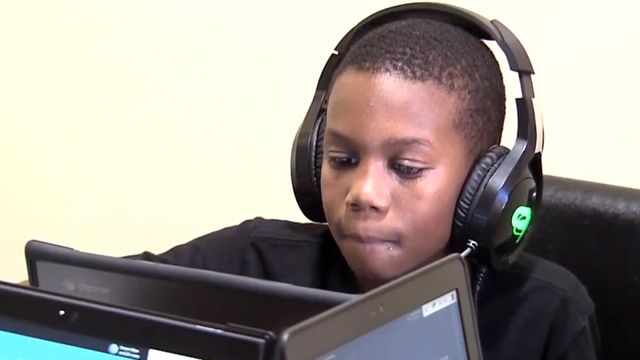Virus could put some students behind in school by a year
More than five months have passed since most children in North Carolina set foot in a classroom and saw a teacher face to face - and there doesn't seem to be an end in sight.
Posted — UpdatedDespite online classes, the coronavirus pandemic will have an educational and economic impact that will last years, according to experts.
"What we found was pretty alarming," said researcher Megan Kuhfeld of the Northwest Evaluation Association, an educational nonprofit that researches classroom outcomes and impacts from outside sources.
The pandemic shut down schools in March. Then there’s the typical "summer slide," when students lose some of what they learned over the extended break between grades. Now, more online learning for most of students in North Carolina is added on top of that, as a minority of school districts have resumed in-person classes.
Kuhfeld says those things added up together create difficulties for everyone in education.
"Teachers have to do catch-up every fall to begin with and really review some of that old material," Kuhfeld said. "That’s nothing new for teachers, but the variability is going to be hard to deal with."
The variability includes students’ access to technology and how engaged those students are while staring at a computer screen.
The timing of the spring school closures had a bigger impact than just a couple of months of school, she said.
"We found that they may have missed approximately 30 percent to 50 percent of what they were supposed to have learned," she said.
There’s growing concern the coronavirus could have a long-term impact, especially among lower-income and minority students, Kuhfeld said, noting that the pandemic could quickly widen an existing achievement gap.
"There are already large inequalities in our systems, and this crisis is really going to exacerbate them," she said.
Online learning creates additional problems for poorer or rural communities because of the technology, she said.
If schools remain online all fall, national consulting firm McKinsey & Co. said students will lose the equivalent of almost seven months of learning. But breaking down the numbers shows the true divide. For white students, it’s six months. Black students would lose more than 10 months, Hispanic students nine months and low-income students will essentially lose a full year of schooling.
"These inequalities weren’t created by COVID. They existed before then, but COVID is going to make everything worse," Kuhfeld said.
The lost learning and potential increase in dropouts could have a huge impact on the economy. McKinsey estimated that, by 2040, when all current K-12 students are in the workforce, the pandemic will lower future salaries and cost the economy $110 billion.
• Credits
Copyright 2024 by Capitol Broadcasting Company. All rights reserved. This material may not be published, broadcast, rewritten or redistributed.






